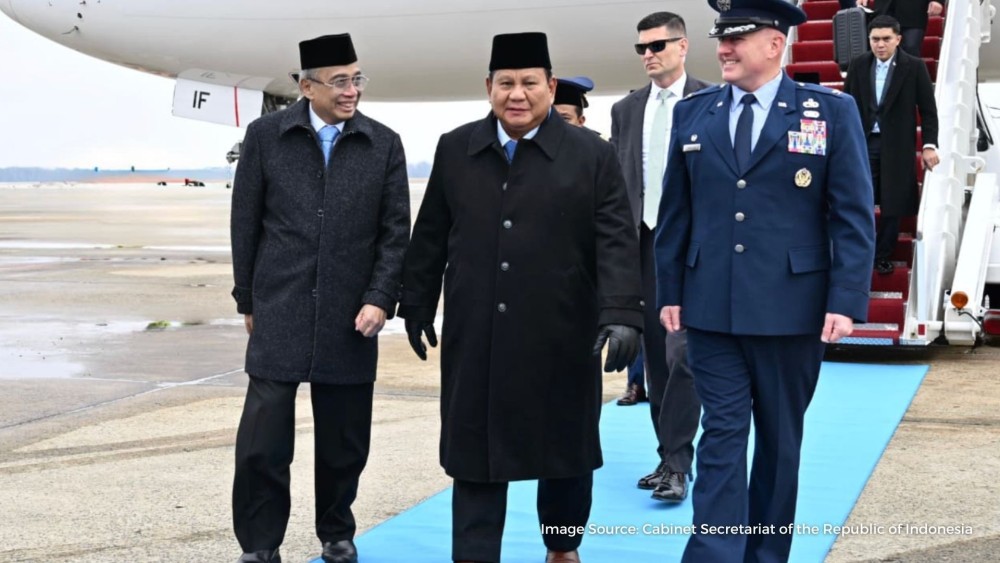This Week’s Headlines (Jun. 7-13, 2025)
13 Jun 2025

Indonesia Eyes New Poverty Calculation Method
Chairman of the National Economic Council (DEN) Luhut Binsar Pandjaitan announced a plan to revise Indonesia's poverty rate calculation method.
The DEN has started evaluating the poverty line figures and will submit its report to President Prabowo Subianto.
"Based on our discussion, we saw the need to revise it," Pandjaitan stated at the International Conference on Infrastructure (ICI) 2025 in Jakarta, Thursday.
He confirmed DEN will coordinate with Statistics Indonesia (BPS) during the evaluation, though a completion target wasn't specified.
The move follows the World Bank's recent update to its poverty rate calculation, which now uses 2021 purchasing power parity (PPP) data.
This adjustment increased the poverty line for upper-middle-income countries to USD 8.30 from USD 6.85, consequently showing Indonesia's poverty rate at 68.25 percent.
BPS previously explained that the World Bank's PPP method adjusts for purchasing power between countries and is based on the median poverty line of 37 nations, not specifically tailored to Indonesia.
In contrast, BPS calculates its poverty line based on minimum expenditure for basic food and non-food needs, derived from the National Socio-Economic Survey (Susenas).
Several economists, like Wahyudi Askar from Celios, advocate for updating BPS's method, arguing that current approaches like the Food Poverty Line (GKM) and Non-Food Poverty Line (GKNM) are outdated.
Paramadina University economist Wijayanto Samirin believes Indonesia's poverty threshold is too low and should gradually align with the World Bank's approach.
Source: Antara News
Landmark Indonesia-EU Trade Deal Concluded, Opening Path for Greater Market Access
Indonesia and the European Union have finalized negotiations on the long-anticipated Comprehensive Economic Partnership Agreement (CEPA), a landmark trade pact aimed at expanding market access and deepening bilateral economic cooperation, Coordinating Minister for Economic Affairs Airlangga Hartarto announced on Saturday.
The conclusion marks the end of a nine-year negotiation process involving 19 intense rounds of talks. Speaking in a video press conference from Brussels, Airlangga confirmed that all remaining issues have been resolved and both sides are ready to move forward.
“Negotiations have officially concluded, with several technical issues settled in the final round at the Chief Negotiators’ level,” Airlangga said. “The Indonesian government remains firmly committed to finalizing trade agreements with key strategic partners to open markets, enhance trade and investment, and reduce both tariff and non-tariff barriers.”
The announcement followed Airlangga’s meeting with European Commissioner for Trade and Economic Security Maroš Šefčovič in Brussels on Friday. The final outcome of the negotiations will soon be reported to President Prabowo Subianto and European Commission President Ursula von der Leyen.
The EU is Indonesia’s fifth-largest trading partner, with bilateral trade reaching USD 30.1 billion in 2024. Indonesia recorded a USD 4.5 billion trade surplus with the bloc last year.
Airlangga stressed the strategic importance of the deal at a time of heightened global uncertainty. “Indonesia and the EU recognize this as a critical moment. Our major commodities complement rather than compete with one another. By finalizing this agreement, we can jointly strengthen global supply chains.”
Key Provisions of the CEPA Deal
One of the agreement’s main benefits is the substantial elimination of import tariffs. Within one to two years of implementation, 80 percent of Indonesia’s exports to the EU will enjoy zero tariffs. Labor-intensive industries such as footwear, textiles, and garments -- along with palm oil, fisheries, renewable energy, and electric vehicles -- are expected to receive fairer preferential treatment.
The EU, meanwhile, raised several issues during the negotiations, including local content requirements (TKDN), the automotive sector, access to critical minerals, and incentives for foreign investors.
Indonesia also pushed for fair treatment of its fishery exports, requesting the EU to align its policies with those extended to other ASEAN nations like Thailand and the Philippines. According to Airlangga, the EU has agreed to provide a level playing field for Indonesia’s fishery products.
Source: Jakarta Globe
Indonesia Invites Foreign Stakes in USD 80 BIllion Seawall to Shield Coasts From Floods
Foreign investors are invited for Indonesia's plan to build a USD 80 billion seawall hundreds of kilometres long to prevent floods along the north coast of its most populous island Java, President Prabowo Subianto said on Thursday.
The seawall project expands on a 2014 plan by the capital Jakarta's government to protect the city from rising sea levels and land subsidence that have caused frequent flooding along the north Java coast.
Prabowo said he would form an agency to run the giant seawall project, stretching from Banten to East Java provinces and which could take 20 years to complete. Officials have said the wall would be about 700 kilometres (435 miles) long.
"One of the most vital infrastructure projects, which is a mega project, that we need to do promptly is the giant seawall across the northern Java coast," Prabowo said in a speech at an infrastructure event.
"(Sea) waters have threatened the lives of our people," he said, citing some towns in central Java.
Sea levels along Indonesian coasts rose an average of 4.25 millimetres annually from 1992 to 2024, but the rate has accelerated in recent years due to climate change, according to the country's Meteorology, Climatology and Geophysical Agency.
Prabowo said he had invited investment from countries such as China and Japan, without elaborating.
Experts say Jakarta is sinking due to excessive extraction of groundwater, leading the central government to plan its move to a new capital in the jungles of Borneo island.
Source: Reuters








